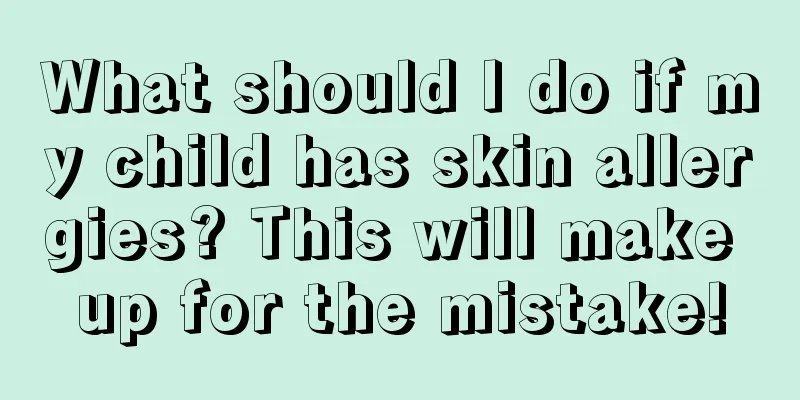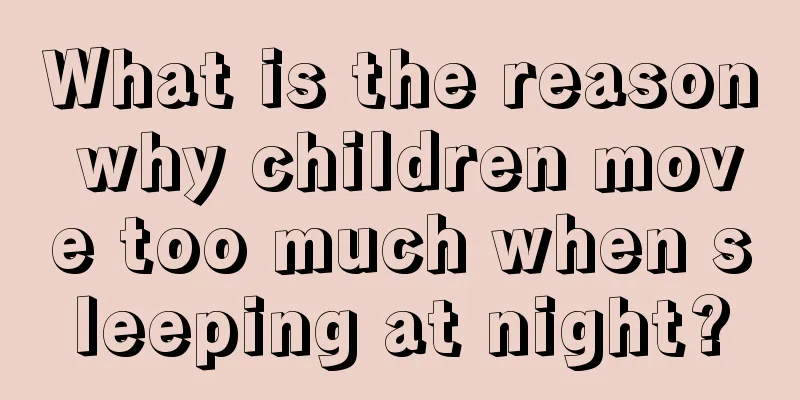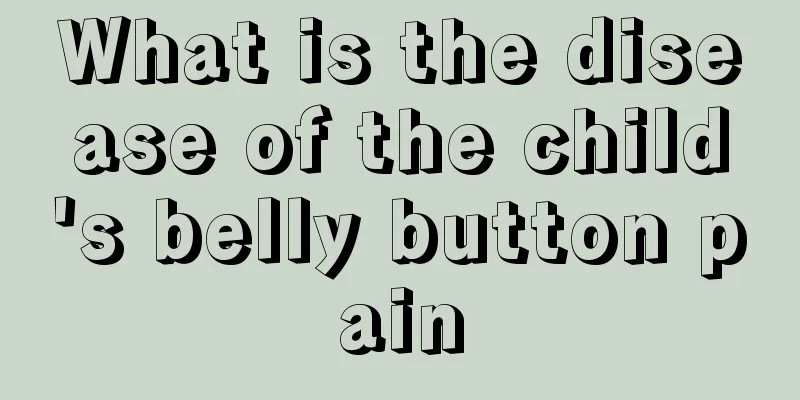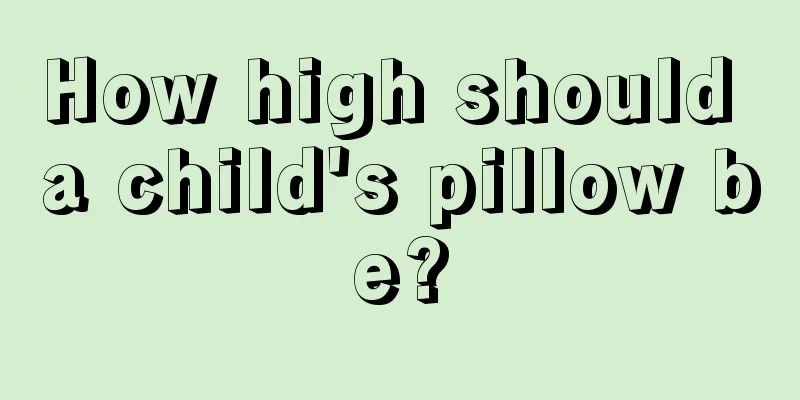What should I do when my baby is eight months old?

|
Children must undergo the first examination after birth, which is mainly to check whether the child has any defects and whether all aspects of the body are normal. After this examination, as the child grows older, the child should be taken to the hospital for regular examinations and vaccinations. When the child is eight months old, a standardized examination should also be conducted to see whether the child's teeth, bones, and physical development are within the normal range. Specific items of baby's 8-month physical examination Items of the sixth physical examination: Interpretation of key projects: 1. Dental examination: Babies aged 9 months usually have 2-4 teeth. The doctor will check the baby's teething condition, find out whether the baby has caries, and guide parents to help the baby with oral hygiene. 2. Evaluation of developmental intelligence: 9-month-old babies can crawl on their hands and knees, sit up from supine to stand and sit down, can switch between various positions and postures well, can stand and walk with the help of something, have the awareness of taking and putting, can pinch small objects with the thumb and index finger, can cover bottle caps, put on cups, etc., can clearly express "Dad" The baby can hear the "ma" sound, understand the connection between language and action, execute simple instructions, recognize body parts, and imitate the body movements of parents. 3. Trace element examination: Generally, trace elements mainly check the content of calcium, iron, zinc, selenium, copper, magnesium and blood lead in the blood. After the baby is born, the content of various trace elements brought by the mother in the first half year is relatively sufficient, so there is no need to do a trace element test; after half a year, the trace elements provided by the mother have been exhausted, and the baby starts to add complementary foods, it is very likely that trace element deficiency will occur, so it is necessary to do a trace element test and follow the doctor's advice for appropriate supplementation. Things to note when your baby is 8 months old It is very troublesome to take off the children's clothes one by one during the physical examination. And many toddlers don't like taking their shoes off -- especially if they're taken off by a stranger. Dress your child in clothing that is easy to take off, preferably a long coat. And be sure to undress your child yourself before the physical examination so you don't have to bother the doctor. Frequently asked questions about baby's 8-month physical examination [Question]: What are the consequences of a high platelet count in a baby's physical examination? [Answer]: Thrombocytosis When the platelet count is >400×109/L, it is called thrombocytosis. Essential thrombocythemia is common in myeloproliferative diseases, and reactive thrombocythemia is common in patients with acute and chronic inflammation, iron deficiency anemia, and cancer. The platelet count in this type of thrombocythemia generally does not exceed 500×109/L, and the platelet count will decrease rapidly after the condition improves after treatment. You should take your baby to the hospital as soon as possible, ask the doctor to diagnose and get timely treatment. [Question]: What should I do if my baby is zinc deficient during physical examination? [Answer]: If the test result shows mild zinc deficiency, you can start with food supplements. For example, insist on breastfeeding, and the mother should eat more foods high in zinc. Choose some zinc-containing rice noodles and biscuits for the baby, and gradually add fish, whole eggs, porridge, noodles, liver paste, tofu, minced meat, chopped vegetables, etc.; if the level is still lower than normal after a two-month follow-up examination, you can take medicine to supplement. Zinc gluconate and iganum zinc can be used. [Question]: How many baby teeth does an 8-month-old baby have? [Answer]: Your baby will have grown 2-4 deciduous teeth by the time he or she is 8 months old. You need to pay attention to the care of the deciduous teeth and remember to rinse your baby's mouth after feeding. |
<<: Eight month old baby food schedule
>>: What to do if your eight-month-old baby crosses his eyes
Recommend
Treatment of red spots in newborns
Summer is coming soon, and many newborns will alw...
What are the symptoms of dysphagia in newborns?
Whether the baby has difficulty swallowing can be...
The dangers of smoking among teenagers
Many teenagers nowadays mature early, and some of...
What is the massage technique for baby’s cough?
For very young babies, many body functions are no...
How much more can a person with a bone age of 12 years old grow?
In daily life, people usually start to grow at th...
Methods to relieve persistent high fever in children
There are many common diseases in children. When ...
What should parents do if their children have poor academic performance?
Children’s studies are what parents care about mo...
What should I pay attention to when my child has diarrhea and pain in the buttocks?
We know that healthy children's stools are of...
Introduction to the sequence of puberty development in boys
Whether it is a boy or a girl, when they reach pu...
What is the reason for children's hunchback?
The problem of hunchback is very common in life a...
A bump on the head
For children, there are always times when they ar...
What to do if your baby has cold limbs
For every parent, once the baby has health proble...
What should I do if my 2-year-old baby vomits and has diarrhea?
Babies are a group that is very prone to illness....
How to stop the baby's cough at night?
Although it is very common for children to cough,...
How many months should a child be weaned?
Some parents are busy with work and have to wean ...









